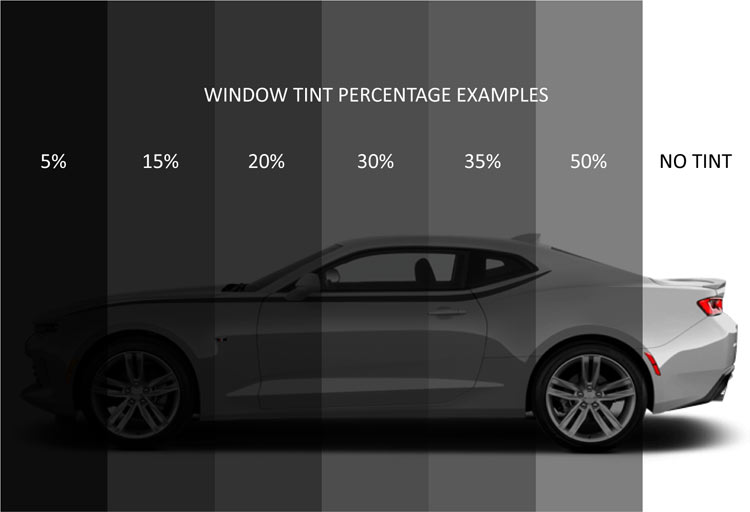Why Window Tinting Is Essential for Reducing Fading and Protecting Your Upholstery
Why Window Tinting Is Essential for Reducing Fading and Protecting Your Upholstery
Blog Article
Window Tinting Regulations: What You Required to Know Before Tinting Your Auto
Understanding home window tinting laws is crucial for any vehicle proprietor taking into consideration tinting their automobile. As you consider improving your vehicle's look and capability, it is vital to comprehend not only the legal implications but additionally the useful factors to consider that come with selecting the best color.
Relevance of Understanding Tint Laws
Comprehending home window tinting legislations is important for car proprietors to make certain conformity with state regulations. These regulations dictate the permitted degrees of tint darkness and reflectivity, which can dramatically vary from one territory to another. Stopping working to stick to these guidelines can result in fines, compulsory removal of the color, and possible problems throughout automobile inspections.
Additionally, understanding these laws assists car proprietors make notified choices regarding their tinting alternatives. Various sorts of window movies supply different benefits, such as UV security, warm denial, and glow decrease. Nonetheless, without expertise of the legal restrictions, car proprietors risk picking items that might eventually cause legal issues.
Additionally, awareness of tinting regulations cultivates a safer driving setting. window tinting. Excessively dark colors can harm exposure, enhancing the risk of mishaps, particularly during the night or in negative weather condition problems. Police likewise make use of these laws to ensure roadway safety, making conformity not just a lawful obligation yet an individual obligation
State-Specific Color Rules
Each state in the U.S. has developed its very own specific regulations relating to home window tinting, showing a diverse array of requirements and demands. These laws can differ considerably, influencing just how car owners come close to installation and conformity. For instance, some states enable darker colors on rear home windows while enforcing strict restrictions on front-side windows.
Furthermore, policies frequently specify permitted color products and shades. Certain states prohibit reflective tints completely, while others may allow them to a restricted degree. Moreover, some territories mandate that lorries with tinted home windows present a sticker label indicating conformity with state regulations, giving a clear identification for legislation enforcement.
Enforcement of these legislations also varies; some states are more proactive, carrying out arbitrary checks, while others count on grievances or noticeable infractions to launch enforcement. Lorry owners must know that failing to adhere to state-specific tint regulations can lead to penalties, mandatory removal of prohibited colors, or both.

Legal Color Percentages
Figuring out the legal tint percentages is crucial for car proprietors looking for to abide by state regulations. Each state has specific laws regulating just how much light should go through the home windows of a car, which is revealed as a portion understood as Noticeable Light Transmission (VLT) This portion differs substantially window tinting across states and can rely on the kind of window-- front side, back side, and windshield.
As an example, some states permit as little as 20% VLT on front side windows, while others may permit up to 50%. Windscreen tinting is often extra restricted, with lots of jurisdictions enabling only a slim band of tint on top of the windshield. In contrast, back home windows commonly have extra lenient regulations, with some states allowing darker tints.
It is crucial for vehicle proprietors to acquaint themselves with their neighborhood legislations to stay clear of prospective legal problems. This consists of understanding just how VLT is determined, as it can vary based upon the kind of window movie made use of. Remaining educated about these policies guarantees compliance and advertises secure driving problems for both the automobile owner and others when driving.
Effects of Non-Compliance
Failing to adhere to window tinting legislations can result in substantial repercussions for car owners. One of the most instant repercussion is the capacity for traffic quits and citations from legislation enforcement. Police officers educated to determine prohibited color levels may provide penalties, which can differ by jurisdiction however often range from modest to significant quantities. Repetitive violations might lead to raised penalties, consisting of greater fines or extra points on a motorist's certificate.

Insurer might likewise impose charges for non-compliance, as prohibited adjustments can be considered as a violation of plan terms. If an incident takes place., this could affect protection rates or lead to issues in cases.
Eventually, the consequences of non-compliance extend past immediate punitive damages; they can affect a driver's insurance rates, legal standing, and total vehicle worth, highlighting the relevance of adhering to local home window tinting guidelines.
Tips for Finding Tinting Options
When picking home window tinting options,Understanding the you could look here implications of non-compliance highlights the importance of making educated selections. To start with, familiarize on your own with your state's details regulations regarding color darkness and reflectivity. Each state has unique guidelines that determine the permitted limitations, so ensure you stay within these guidelines to prevent charges.
Secondly, think about the sort of tint product. Choices include colored, metalized, and ceramic tints, each offering varying levels of warm being rejected, UV defense, and durability. As an example, ceramic colors supply remarkable heat resistance without hindering electronic gadgets, making them a preferred choice.
Furthermore, assess your main objective for tinting. If you look for enhanced personal privacy, choose for darker colors; however, keep in mind that this may impact visibility at night. Alternatively, if glare decrease and UV protection are your main my company concerns, lighter colors may be sufficient.
Last but not least, speak with an expert installer who is educated concerning regional regulations and can advise high-grade products fit to your needs (window tinting). Taking these elements right into account will ensure you make an educated decision, ultimately boosting both your vehicle's aesthetic appeals and performance
Conclusion
In verdict, knowledge with window tinting regulations is crucial prior to applying tint to a car. By recognizing lawful needs and choosing proper color materials, car owners can attain aesthetic enhancement while continuing to be certified with appropriate legislations.
Recognizing window tinting legislations is crucial for any kind of car owner taking into consideration tinting their vehicle.Recognizing window tinting laws is important for automobile proprietors to ensure conformity with state regulations. Some states permit darker colors on back windows while imposing stringent restrictions on front-side home windows.
In comparison, back home windows normally have extra lenient policies, with some states allowing darker tints. (window tinting)
In verdict, knowledge with window tinting laws is necessary prior to applying color to a vehicle.
Report this page